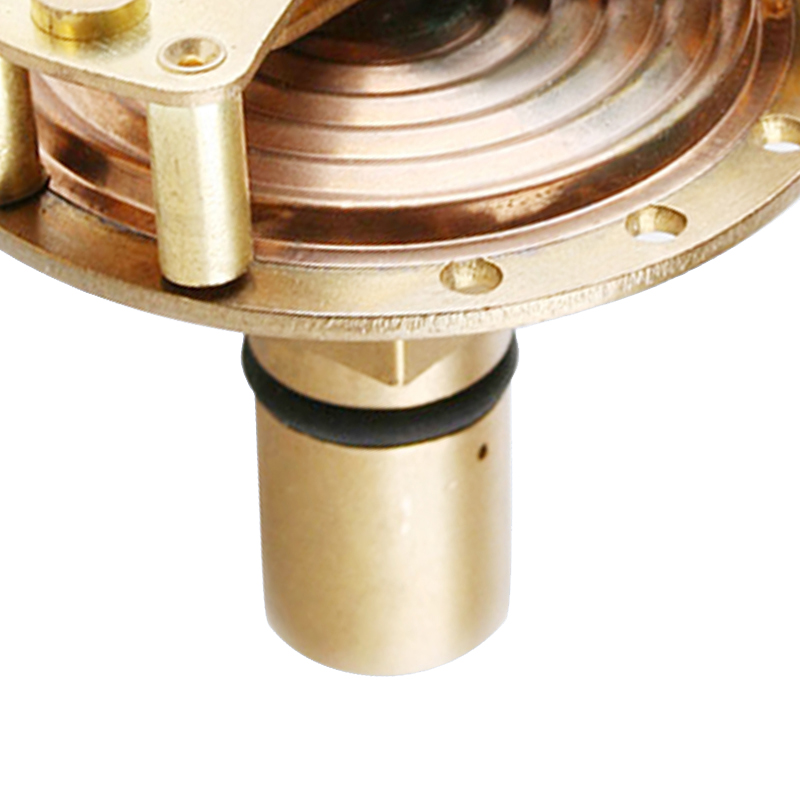
sie . 06, 2024 13:51 Back to list
Comprehensive Guide to Differential Pressure Gauge Kit Manufacturing and Selection for Various Applications
Understanding Differential Pressure Gauge Kits and Their Manufacturing
Differential pressure gauge kits are critical instruments used in various industries, including oil and gas, pharmaceuticals, water treatment, and HVAC systems. These gauges measure the difference in pressure between two points in a system, providing essential data for monitoring and maintaining system performance. This article delves into the significance of differential pressure gauge kits, their components, and the intricacies involved in their manufacturing process.
Importance of Differential Pressure Measurements
In many applications, maintaining the correct pressure differential is vital for optimal performance and safety. For instance, in filtration processes, a differential pressure gauge can indicate when a filter is becoming clogged or requires replacement. This not only helps in ensuring efficiency but also prevents damage to the system and its components. Similarly, in HVAC applications, monitoring pressure differences can aid in balancing airflow, enhancing comfort, and ensuring energy efficiency.
Components of Differential Pressure Gauge Kits
A typical differential pressure gauge kit consists of several key components
1. Differential Pressure Gauge This is the primary instrument that displays the pressure difference. These gauges come in various forms, including analog and digital, to meet the specific needs of different applications. Digital gauges often offer advanced features such as data logging and remote monitoring capabilities.
2. Transducers and Sensors Sensor technology plays a crucial role in accurately measuring pressure differentials. Transducers convert pressure measurements into electrical signals, which can then be displayed or analyzed by connected devices or systems.
3. Pressure Hoses and Fittings These are essential for connecting the gauge to the pressure points in the system. High-quality materials are necessary to ensure that the hoses can withstand the pressure and chemical properties of the fluids they may encounter.
4. Calibration Equipment Ensuring that differential pressure gauges provide accurate measurements requires regular calibration. Calibration kits often include reference gauges and tests to verify the performance of the gauges.
differential pressure gauge kit factories

5. Mounting Accessories Proper installation and positioning of the gauge are essential for accurate readings. Mounting brackets and supports are necessary for stable installation in various environments.
Manufacturing Process of Differential Pressure Gauge Kits
The manufacturing of differential pressure gauge kits involves several intricate steps
1. Design and Engineering The process begins with a careful design phase, where engineers determine the specifications required for the gauges based on their intended applications. This phase includes selecting materials that can withstand the pressures and conditions they will encounter.
2. Component Fabrication The individual elements of the gauge, such as the case, dial, and sensor components, are manufactured using various machining, molding, and assembling techniques. Precision in manufacturing is critical, as any deviation can affect the gauge’s performance.
3. Assembly Once the components are fabricated, they are assembled into complete gauge units. This process requires a skilled workforce to ensure that all parts fit together correctly and meet quality assurances.
4. Calibration and Testing After assembly, each gauge is calibrated to ensure accuracy. Testing under various conditions simulates real-world applications to verify that the gauges perform reliably before they are packaged and shipped.
5. Quality Control Manufacturing facilities implement stringent quality control measures to guarantee that each gauge meets industry standards and regulatory requirements. Final inspections often involve checking for leaks, verifying gauge accuracy, and ensuring the durability of mechanical parts.
Conclusion
Differential pressure gauge kits are indispensable tools in many sectors, playing a pivotal role in maintaining system efficiency and safety. The complexities of their manufacturing reflect the high standards necessary for accuracy and reliability. With technology continually evolving, these instruments will likely see further advancements that enhance their capabilities, ensuring their continued relevance in modern engineering and industrial applications. As industries demand more precise and efficient operations, the role of differential pressure gauges will only become more significant.
-
High-Precision 5 Valve Manifold Differential Pressure Gauge Suppliers
NewsApr.29,2025
-
High-Precision Diaphragm Vacuum Pressure Gauges Manufacturers & Quotes
NewsApr.29,2025
-
Omega Differential Pressure Gauges High Accuracy & Durability
NewsApr.28,2025
-
Low Pressure Differential Pressure Gauges Precision Solutions & Quotes
NewsApr.28,2025
-
Digital Diaphragm Pressure Gaauge Precision Measurement & OEM Quotes
NewsApr.28,2025
-
Differential Pressure Gauge China Price High-Accuracy & Best Quotes
NewsApr.28,2025
